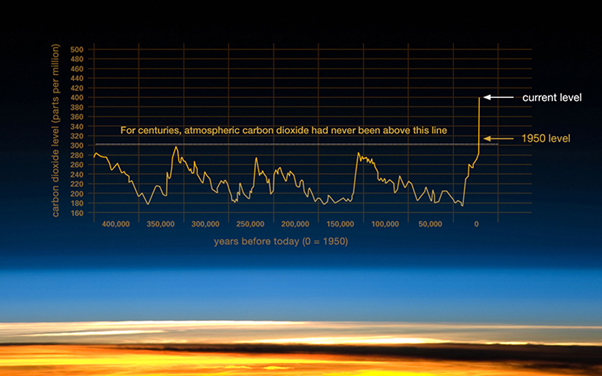
Environmental initiatives
Environmental law is a significant area within the School of Law and Justice, with initiatives including Australia’s first MOOC in International Climate Change Law and Policy, assistance with environmental and public interest cases through the University of Newcastle Legal Centre, and the first Climate Emergency Declaration by an Australian law school.
The School of Law and Justice recognises the scientific consensus that an urgent and significant reduction in greenhouse gas emissions is required to avoid catastrophic environmental, economic and humanitarian consequences.
The School therefore encourages and supports its staff, students and alumni to use their skills and capacities as lawyers, researchers, teachers, policymakers, administrators and citizens to support efforts to promote emergency action to reduce emissions.
This initiative builds on the Narratives of Climate Change Symposium, hosted at the School of Law and Justice in July 2018, and its focus on evidence-based policy-making and climate justice.
Evidence-based approaches call for action to reduce carbon dioxide levels due to:
- Unequivocal warming of the climate system, with many of the observed changes since the 1950s being unprecedented over decades to millennia (IPCC AR5)
- Historically high (and rapidly growing) levels of anthropogenic greenhouse gas emissions in the atmosphere, driven largely by economic and population growth (IPCC AR5)
- Very strong evidence (i.e. 95–100% likelihood) suggesting that anthropogenic greenhouse gas emissions are the dominant cause of climate change (IPCC AR5)
- Very strong evidence suggesting the cost of acting to reduce carbon dioxide levels now will be less economically damaging than continued high carbon dioxide levels (IPCC Special Report: Global Warming of 1.5 ºC)
- Significant evidence that failure to take emergency action to reduce greenhouse gas emissions will lead to significantly increased and irreversible climate-related risks for natural and human systems (IPCC Special Report: Global Warming of 1.5 ºC)
- Intergovernmental Panel on Climate Change's (IPCC) Fifth Assessment Report
- IPCC Special Report: Global Warming of 1.5 ºC
As a Law School, this initiative notes the collective legal responsibility of the international community under the United Nations Framework Convention on Climate Change (UNFCCC) and its associated agreements and protocols, including the Paris Agreement.
We also note the evidence evaluated in the reports of the United Nations Environment Program and of the IPCC, demonstrating that current commitments expressed in the form of nationally determined contributions (NDCs) as submitted under the Paris Agreement are insufficient to enable the international community to keep warming to safe levels.
By declaring a climate emergency, we encourage emergency action directed to meeting greenhouse gas emissions reduction targets, at the same time as considering climate justice, intergenerational justice and intragenerational justice for those persons and communities who are disproportionately affected by extreme weather events as a result of climate change and to ensure Australians employed in fossil fuel industries find appropriate alternate employment.

Why a 'climate change emergency'?
The call for recognising a climate change emergency comes from recognition of the need for ‘collective action’, and understanding that currently agreed collective action is insufficient to avoid irreversible and extraordinarily costly climate change impacts.
For groups who cannot take action to address greenhouse gas emissions targets at an international level, declaration of a climate emergency can lead to effective local action as well as to national governments making further commitments.
Currently, over 717 jurisdictions and local governments (including the Newcastle City Council, the Upper Hunter Shire Council, and Sydney City Council) have declared a climate emergency calling for urgent action to reduce greenhouse gasses, as have a number of other organisations including universities.
For the most recent update, see the climate emergency campaign.
Useful publications
Kellett C, Aydos EDL, Rudolph S, Weller SR, 'The Social Cost of Carbon Dioxide: Policy and Methods for Pricing Greenhouse Gas Emissions', Our Changing World in the South Pacific: Australasian and German Perspectives, Australian Association of von Humboldt Fellows, Melbourne 3-16 (2018)
Baird D, Aydos EDL, 'Climate Change, Economic Instruments and the Land Sectors: The Australian Experience', O Estado Regulador no Cenario Ambiental, Instituto o Direito por um Planeta Verde, São Paulo 45-71 (2017)
Aydos EDL, 'Levelling the playing field or playing on unlevel fields: the industry assistance framework under the European Union ETS, the New Zealand ETS, and Australia's CPM', Market Based Instruments, Edward Elgar Publishing, Cheltenham, UK 135-156 (2013)
Aydos EDL, 'Australia's carbon pricing mechanism', Carbon Pricing, Growth and the Environment, Edward Elgar Publishing, Cheltenham 261-276 (2012)
The University of Newcastle acknowledges the traditional custodians of the lands within our footprint areas: Awabakal, Darkinjung, Biripai, Worimi, Wonnarua, and Eora Nations. We also pay respect to the wisdom of our Elders past and present.